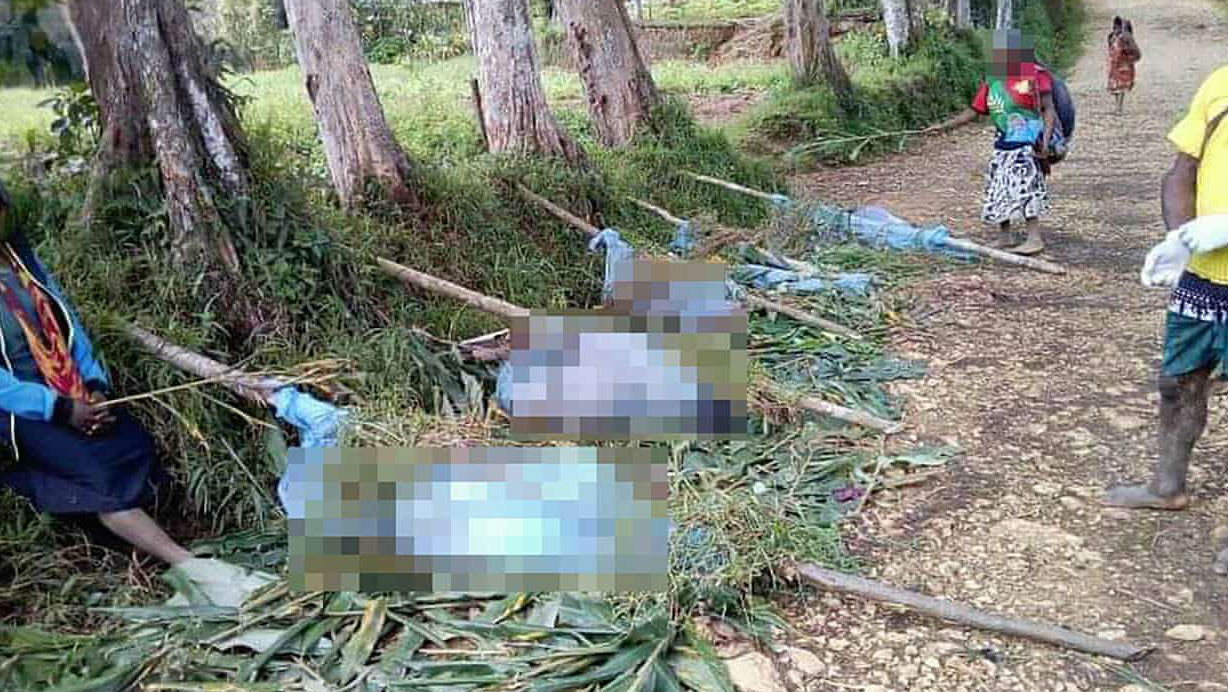Papua New Guinea: what is behind the latest tribal massacre?
Murder of women and children highlights security concerns in Highlands region

A free daily email with the biggest news stories of the day – and the best features from TheWeek.com
You are now subscribed
Your newsletter sign-up was successful
At least two dozen people, including pregnant women and children, have been killed in Papua New Guinea in one of the country’s worst outbreaks of tribal violence for years.
The deaths are said to have taken place over several days in Hela province. At least eight of the victims are reported to be younger than 15 and two of the women killed were pregnant.
“Rival tribes apparently clashed over control of local gold deposits in the mineral-rich soil,” says AFP.
The Week
Escape your echo chamber. Get the facts behind the news, plus analysis from multiple perspectives.

Sign up for The Week's Free Newsletters
From our morning news briefing to a weekly Good News Newsletter, get the best of The Week delivered directly to your inbox.
From our morning news briefing to a weekly Good News Newsletter, get the best of The Week delivered directly to your inbox.
A representative from the provincial department of health posted pictures on Facebook of what he said was a massacre in Karida village (pictured above).
“The pictures show a row of bodies wrapped in cloth and tied to long poles,” the BBC reports. “He said some of them had been chopped into pieces and their body parts were hard to recognise.”
Papua New Guinea’s recently appointed Prime Minister James Marape wrote on Facebook that it was “one of the saddest days of my life”.
Tribal violence is an ongoing issue in Papua New Guinea’s Highlands region, but Hela’s governor Philip Undialu said they had not heard of such incidents happening in this particular area.
A free daily email with the biggest news stories of the day – and the best features from TheWeek.com
“It's a very sad story,” Undialu said in the BBC report. “It was retaliation of a previous attack. Both attacks were made in an innocent community where people were not expecting it and all of us are in a state of shock.”
Rivalries are “often prompted by rape or theft, or disputes over tribal boundaries”, says the BBC, adding that the population has doubled in the last 50 years leading to “intensified competition for both land and resources”.
Ahmad Hallak, the head of mission for the International Committee of the Red Cross in PNG, told ABC: “It’s an open secret that the prevalence of modern weapons is definitely adding fuel to the flames.
“Tribal violence is an historical phenomenon; it’s been going on for time immemorial. In the past, though, using bows and arrows [and] spears, much more limited battles would take place. With the presence of modern weapons this is no longer the case, and we are seeing humanitarian consequences very similar to Iraq, Syria, Afghanistan.”
The Red Cross estimates that dozens of people are killed and thousands are displaced by tribal violence annually but this is said to be the most serious incident in years.
“The case has highlighted poor resourcing for police,” adds the ABC.
On Facebook, Prime Minister Marape asked: “How can a province of 400,000 people function with policing law and order with under 60 policemen, and occasional operational military and police that does no more then band aid maintenance?”
Marape warned those “who have been living off killing others” that he is “coming for you”, adding that he is “not afraid to use strongest measures in law”.
-
 Crisis in Cuba: a ‘golden opportunity’ for Washington?
Crisis in Cuba: a ‘golden opportunity’ for Washington?Talking Point The Trump administration is applying the pressure, and with Latin America swinging to the right, Havana is becoming more ‘politically isolated’
-
 5 thoroughly redacted cartoons about Pam Bondi protecting predators
5 thoroughly redacted cartoons about Pam Bondi protecting predatorsCartoons Artists take on the real victim, types of protection, and more
-
 Palestine Action and the trouble with defining terrorism
Palestine Action and the trouble with defining terrorismIn the Spotlight The issues with proscribing the group ‘became apparent as soon as the police began putting it into practice’
-
 Epstein files topple law CEO, roil UK government
Epstein files topple law CEO, roil UK governmentSpeed Read Peter Mandelson, Britain’s former ambassador to the US, is caught up in the scandal
-
 Iran and US prepare to meet after skirmishes
Iran and US prepare to meet after skirmishesSpeed Read The incident comes amid heightened tensions in the Middle East
-
 Israel retrieves final hostage’s body from Gaza
Israel retrieves final hostage’s body from GazaSpeed Read The 24-year-old police officer was killed during the initial Hamas attack
-
 China’s Xi targets top general in growing purge
China’s Xi targets top general in growing purgeSpeed Read Zhang Youxia is being investigated over ‘grave violations’ of the law
-
 Panama and Canada are negotiating over a crucial copper mine
Panama and Canada are negotiating over a crucial copper mineIn the Spotlight Panama is set to make a final decision on the mine this summer
-
 Why Greenland’s natural resources are nearly impossible to mine
Why Greenland’s natural resources are nearly impossible to mineThe Explainer The country’s natural landscape makes the task extremely difficult
-
 Iran cuts internet as protests escalate
Iran cuts internet as protests escalateSpeed Reada Government buildings across the country have been set on fire
-
 US nabs ‘shadow’ tanker claimed by Russia
US nabs ‘shadow’ tanker claimed by RussiaSpeed Read The ship was one of two vessels seized by the US military